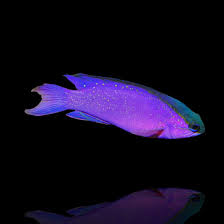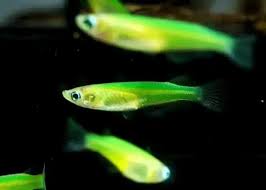
Dragon boat racing is one of the most iconic and thrilling traditions in Chinese culture, deeply ingrained in the country’s history and celebrated with immense enthusiasm during the annual Dragon Boat Festival (Duānwǔ Jié). This high-energy, colorful event is not only a sports competition but also a spiritual and cultural symbol that connects the past with the present. The practice of dragon boat racing can be traced back over two thousand years, with its roots deeply embedded in Chinese folklore, religion, and traditional values. In this article, we will explore the rich history and cultural significance of dragon boat racing, its connection to traditional Chinese festivals, and the unique roles it plays in uniting communities and celebrating heritage.
The Origins of Dragon Boat Racing
The origins of dragon boat racing are believed to be intertwined with the ancient Chinese story of Qu Yuan, a revered poet and statesman during the Warring States period (475–221 BCE). According to legend, Qu Yuan, a loyal official of the State of Chu, was exiled after being wrongfully accused of treason. During his exile, he wrote some of China’s most profound poetry, expressing his love for his country and his deep concern over its future.
When Qu Yuan learned that his beloved state had been invaded, he was devastated and decided to end his life by drowning himself in the Miluo River. Upon hearing of his death, local villagers, who admired him, raced their boats to the river in an attempt to save him. As they rowed, they threw rice dumplings (known as zongzi) into the water to feed his spirit and prevent fish from devouring his body.
This event marked the beginning of the Dragon Boat Festival, which is held annually on the 5th day of the 5th month of the lunar calendar. The dragon boats and the racing of them became a symbol of the villagers’ efforts to protect Qu Yuan’s body, while the zongzi, wrapped in bamboo leaves, became a traditional offering during the festival.
The Dragon Boat Festival: A Celebration of Heritage
Today, the Dragon Boat Festival is celebrated not only in China but also in various regions around the world where Chinese communities have flourished. The festival has become a vibrant celebration that honors Qu Yuan’s memory, promotes traditional values, and brings together people of all ages and backgrounds.
The festival is a time for families to gather, communities to unite, and individuals to honor their cultural heritage. It is marked by the excitement of dragon boat races, the enjoyment of delicious zongzi, and the offering of prayers and tributes to the spirit of Qu Yuan. The festival is also an occasion for reflection, as it symbolizes resilience, loyalty, and patriotism—values that are deeply ingrained in Chinese culture.
Dragon Boat Racing as a Sport: Skills, Teamwork, and Strategy
While dragon boat racing has its origins in a ritualistic and commemorative context, it has evolved into a highly competitive and skilled sport. Teams of rowers race in long, narrow boats that are often adorned with the image of a dragon on the front. The boats are propelled by synchronized paddling, and the races require a great deal of coordination, physical strength, and teamwork.
The dragon boat itself is a beautiful and symbolic vessel. Traditionally, the boats are crafted from wood, though modern versions may be made of fiberglass or other materials. They are typically between 10 and 12 meters in length and can accommodate anywhere from 10 to 20 rowers, depending on the type of race. At the front of the boat is often a dragon’s head, and at the rear, a dragon’s tail, further enhancing the symbolic connection to the legend of Qu Yuan and the mythical dragon.
The races are held on rivers, lakes, and other bodies of water, and they vary in length and format. In China, dragon boat races often take place in major cities and rural areas alike, with participants ranging from professional athletes to local community teams. The competitions are fast-paced, intense, and thrilling, drawing large crowds who gather to watch the spectacle. Teams compete not only for glory and prizes but also for the honor of their community, as the race represents a collective effort and spirit of unity.
Teamwork is at the heart of dragon boat racing. The sport requires precise synchronization, as all rowers must paddle in unison to ensure that the boat moves efficiently and swiftly. A drummer positioned at the front of the boat helps maintain the rhythm, providing verbal cues and keeping the rowers in sync. This synchronized effort reflects traditional Chinese values of cooperation, discipline, and unity.
The Cultural and Spiritual Significance of Dragon Boat Racing
Dragon boat racing is not only a physical sport but also a deeply spiritual activity. It is closely tied to traditional Chinese beliefs, and it carries symbolic meanings that reflect Chinese philosophy, such as harmony between humans and nature, respect for ancestors, and the cultivation of virtues such as strength, courage, and perseverance.
The dragon itself is a powerful and auspicious symbol in Chinese culture. In Chinese mythology, the dragon is a divine creature that controls water, weather, and the forces of nature. It is often associated with imperial power and is seen as a protector of the people. In dragon boat races, the dragon symbolizes protection, vitality, and good fortune. The image of the dragon on the boats is meant to invoke these positive qualities and ensure success in the race.
The rhythm of the paddling in the boat is also symbolic. It mirrors the cyclical nature of life, with its ups and downs, as well as the balance between effort and reward. The synchronization of the team reflects the importance of unity and working together toward a common goal. The race itself can be seen as a metaphor for life’s challenges, requiring perseverance, patience, and mutual support.
Moreover, the practice of dragon boat racing is an offering to the spirits of the ancestors. Just as the villagers in Qu Yuan’s time raced to the river to honor him, modern-day races are seen as a way of paying tribute to the wisdom and guidance of those who came before. The racing tradition is a form of remembrance, reinforcing the importance of family and community ties, and celebrating the continuity of Chinese culture.
Dragon Boat Racing: A Global Tradition
While the Dragon Boat Festival and its races have deep historical and cultural roots in China, the tradition has spread across the globe, particularly to countries with large Chinese populations, such as Taiwan, Hong Kong, Singapore, and Malaysia. Over the past few decades, dragon boat racing has gained international popularity and is now a widely practiced sport in many parts of the world.
In countries like Canada, the United States, and Australia, dragon boat races have become prominent events, often drawing participation from a diverse range of communities. International competitions, such as the World Dragon Boat Racing Championships, are held regularly, showcasing the growing enthusiasm for this ancient sport.
Dragon boat racing, as practiced around the world today, brings people from different cultures and backgrounds together. It serves as a bridge for cultural exchange, fostering a deeper appreciation for Chinese traditions while promoting global unity and friendship. It has also become a tool for building community, with many teams formed by local residents who come together to train, race, and celebrate the festival as a shared experience.
The Role of Dragon Boat Racing in Preserving Chinese Culture
Dragon boat racing plays a crucial role in the preservation and promotion of Chinese culture. The sport connects younger generations with their heritage and provides a platform for learning about Chinese history, traditions, and values. For many participants, dragon boat racing is an opportunity to engage with their cultural roots, celebrate their identity, and pass on these traditions to future generations.
Moreover, the Dragon Boat Festival itself serves as a reminder of the importance of cultural continuity. It is a time when families and communities come together to celebrate not only the festival’s historical origins but also the values that are cherished in Chinese culture—respect for ancestors, unity, cooperation, and resilience.
The continued practice of dragon boat racing ensures that these cultural and spiritual elements are preserved. As more people around the world take part in the sport, they contribute to keeping the tradition alive and helping it evolve into a global celebration of Chinese heritage.
Conclusion
Dragon boat racing is much more than just a competitive sport. It is a dynamic celebration of Chinese culture, history, and values. Rooted in the legendary story of Qu Yuan, the race has evolved into a thrilling and symbolic tradition that unites communities and honors the ancestors. From its origins in ancient China to its global presence today, dragon boat racing continues to inspire people to embrace unity, teamwork, and resilience. The Dragon Boat Festival, with its festive races, serves as a living testament to the enduring significance of Chinese culture, and it remains an important tradition that brings people together to celebrate both heritage and the future.









